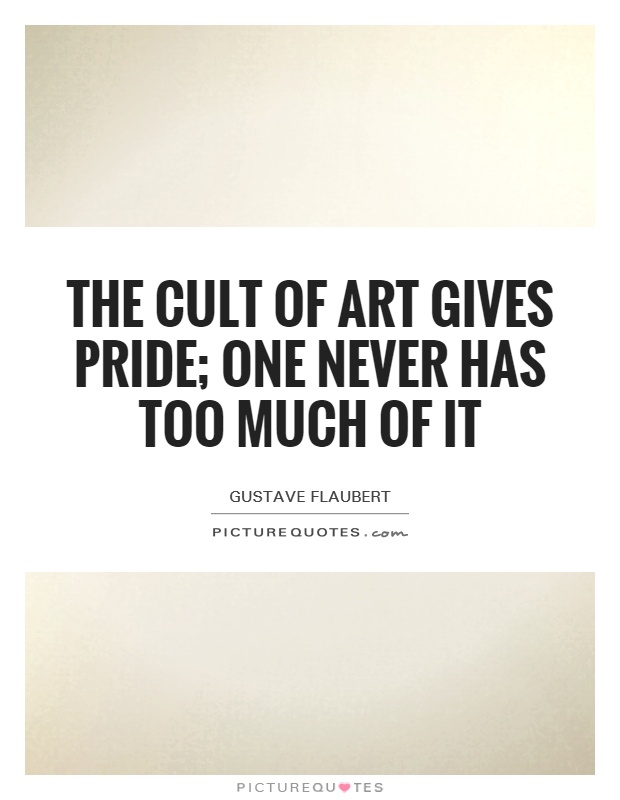The cult of art gives pride; one never has too much of it

The cult of art gives pride; one never has too much of it
Gustave Flaubert, a renowned French novelist known for his meticulous attention to detail and precise language, was a firm believer in the power of art to elevate the human spirit. In his works, Flaubert often explored the themes of beauty, passion, and the pursuit of perfection, all of which are central to the idea of the cult of art.For Flaubert, art was not just a means of self-expression, but a way of transcending the limitations of everyday life and connecting with something greater than oneself. In his novel "Madame Bovary," Flaubert depicts the tragic consequences of a woman who becomes obsessed with the idea of living a life of luxury and beauty, only to find herself trapped in a cycle of dissatisfaction and despair. Through the character of Emma Bovary, Flaubert explores the dangers of placing too much importance on material possessions and external appearances, and the emptiness that can result from a life devoid of true meaning and purpose.
In Flaubert's view, the cult of art offers a way out of this existential crisis, providing a source of pride and fulfillment that transcends the superficial concerns of the material world. By immersing oneself in the world of art, one can experience a sense of connection to something larger than oneself, a sense of beauty and harmony that can bring joy and meaning to life.
Flaubert himself was a dedicated artist who devoted countless hours to perfecting his craft, often laboring over a single sentence for days or even weeks in order to achieve the desired effect. His commitment to excellence and his belief in the transformative power of art are evident in his works, which continue to inspire readers and artists alike to this day.












 Friendship Quotes
Friendship Quotes Love Quotes
Love Quotes Life Quotes
Life Quotes Funny Quotes
Funny Quotes Motivational Quotes
Motivational Quotes Inspirational Quotes
Inspirational Quotes